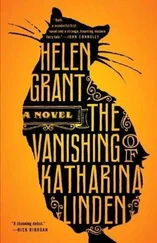Amanda Douglas - Helen Grant's Schooldays
Здесь есть возможность читать онлайн «Amanda Douglas - Helen Grant's Schooldays» — ознакомительный отрывок электронной книги совершенно бесплатно, а после прочтения отрывка купить полную версию. В некоторых случаях можно слушать аудио, скачать через торрент в формате fb2 и присутствует краткое содержание. Издательство: Иностранный паблик, Жанр: foreign_prose, foreign_children, на английском языке. Описание произведения, (предисловие) а так же отзывы посетителей доступны на портале библиотеки ЛибКат.
- Название:Helen Grant's Schooldays
- Автор:
- Издательство:Иностранный паблик
- Жанр:
- Год:неизвестен
- ISBN:нет данных
- Рейтинг книги:5 / 5. Голосов: 1
-
Избранное:Добавить в избранное
- Отзывы:
-
Ваша оценка:
- 100
- 1
- 2
- 3
- 4
- 5
Helen Grant's Schooldays: краткое содержание, описание и аннотация
Предлагаем к чтению аннотацию, описание, краткое содержание или предисловие (зависит от того, что написал сам автор книги «Helen Grant's Schooldays»). Если вы не нашли необходимую информацию о книге — напишите в комментариях, мы постараемся отыскать её.
Helen Grant's Schooldays — читать онлайн ознакомительный отрывок
Ниже представлен текст книги, разбитый по страницам. Система сохранения места последней прочитанной страницы, позволяет с удобством читать онлайн бесплатно книгу «Helen Grant's Schooldays», без необходимости каждый раз заново искать на чём Вы остановились. Поставьте закладку, и сможете в любой момент перейти на страницу, на которой закончили чтение.
Интервал:
Закладка:
There were other things – a column about some wonderful exhumations in Arizona that were indications of a pre-historic people.
"Queer," she commented when Helen had finished, "but everywhere it seems as if cities were built on the ruins of old cities. And no one knows the thousands of years the world has stood. There is a theory that we come back to life every so often, that some component part of us doesn't die. Still, I do not see the use if one can't remember."
"But there is – heaven – " Helen was a little awe-struck at the unorthodox views.
"Well – no one has come back from heaven. I believe there are several cases of trances where people thought they were there, and had to come back, and were very miserable over it. But it seems to me being here is the best thing we know about. I feel as if I should like to live hundreds of years, if I could be well and have my faculties."
"There's Auntie Briggs, as they call her, over to Center, who is ninety-seven, and grandmother White was ninety-five on Christmas day."
"Tell me about them. Are they well? Do they get about?"
"Grandmother White is spry as a cricket, as people say. She sews and knits and doesn't wear glasses."
"That's something like." The incident cheered her amazingly. "And the other old lady?"
"She is quite deaf and walks about with a cane, but I think she's pretty well." Helen did not say she was cross and crabbed and a trial to her grand-daughter's family. It really was sad to live past the time when people wanted you. But couldn't you be sweet and comforting? Must old age be queer and disagreeable?
"I shall try to live to a hundred," said Mrs. Van Dorn. "Let me see – I wish you'd read something bright, about people having good times. Why do writers put so much sorrow in stories? It is bad enough to have it in the world."
Helen ran up and brought down a pile of novels that Mr. Disbrowe had selected in the city. But one did not suit and another did not suit.
"We will look at the sun going down. What wonderful sunsets I have seen!"
"Tell me about them," entreated Helen.
"There was one at the Golden Gate, California. No one ever could paint anything like it." Mrs. Van Dorn looked across the sky as if she saw it again. She was an excellent hand at description. Then the men were coming in, the dinner bell rang.
"I won't bother to dress, I'll play invalid."
Helen pushed the chair in a sheltered place, and laid the shawl over the back of a hall chair. Everybody congratulated Mrs. Van Dorn, and she said with a little laugh that she thought it was the weather, and she had been playing off, that she hadn't been really ill.
"I think we all gave in to the weather," said Mrs. Lessing. "I had a touch of rheumatism. You can have a fire in wet cool weather, but when it is wet hot weather, you can hardly get your breath and feel smothered."
"It's been a dreadful week for trade," remarked Mr. Disbrowe. "I haven't made my salt. Perhaps it would have been better to have tried pepper."
They all laughed at that.
"Mrs. Dayton has tried both salt and pepper and been cheerful as a lark," said Mrs. Pratt.
"And plenty of sugar," laughed Mrs. Dayton. "Though I confess I have been tried with jelly that wouldn't jell. The weather has been bad for that."
"And Miss Helen has kept rosy. She has been good to look at," subjoined Mrs. Disbrowe.
Mrs. Van Dorn smiled at the girl who flushed with the praise.
She wanted to be read to sleep that night, just as she had been the night before, and chose Tennyson.
"Well, I do hope we will have a nice week to come," Mrs. Dayton said when they were alone. "Old lady Van Dorn has been trying. Helen, you have kept your temper excellently. What are you smiling about?"
"I guess I have been trained to keep my temper."
"Because your aunt doesn't let anyone fly out but herself? That's in the Cummings blood. And you haven't any of that. Sometimes your voice has the sound of your father's. You are more Grant than Mulford."
"You knew my father – " Helen paused and glanced up wondering whether it was much or little.
"Well – yes," slowly. "And not so very much either. You see I was beyond my school days," and Mrs. Dayton gave a retrospective smile. "Your mother went to school to him the first year he taught. I never could understand – " and she wrinkled her brow a little.
"I suppose he was very much in love with her?" Helen colored vividly as if she was peering into a secret. The love stories she had been reading were taking effect in a certain fashion. She was beginning to weave romances about people. Aunt Jane blamed her father for a good many things, and especially the marriage. But she never had a good word for him.
"Oh, what nonsense for children like you to think about love! Well," rather reluctantly, "he must have been pleased with her, she was bright and pretty, but it wasn't wise for either of them, and it did surprise everybody. She was one of the butterfly kind with lots of beaus. Dan Erlick's father waited on her considerably, he was pretty gay, and people thought she liked him a good deal. Then he married a Waterbury girl, and not long after she married your father. There were others she could have had – we all thought more suitable. He was a good deal older, and cared mostly for books and study. Then he began with some queer notions, at least the Center people thought so – that the world had stood thousands of years we knew nothing about, and that the Mosaic account wasn't – well then people hadn't heard so much about science and all that, and were a little worried lest their children should turn out infidels. And he found a place in some college at the West, but it seemed as if they made a good many changes until she came home to die. But she always appeared to think he had been kind and taken good care of her. If he hadn't the Center would have heard about it."
That didn't altogether answer the question. Helen wanted some devotion on which to build a romance. Since she could not put her mother in a heroine's place, she wanted her father for a hero. But she had never seen much of him, and she had always felt a little afraid of the grave, tall, thin man who never caressed her, or indeed seemed to care about her. Had anyone really loved him? Somehow she felt his had been a rather solitary life and pitied him.
"He had a curious sort of voice," continued Mrs. Dayton. "It wasn't loud or aggressive, but – well I think persuasive is the word I mean. He had a way of making people think a good deal as he did, without really believing in him or his theories. He was a man out of place, you'll find what that means as you go on through life, a sort of round peg that couldn't get fitted to the square hole in Hope Center."
"Oh, dear! I wonder if I shall be like him?" The tone was half apprehensive, half amusing and the light in her eyes was full of curious longing.
"I do suppose you get your desire for knowledge from him. I never heard of a Mulford who was much of a student, nor a Cummings either. Though I am not sure education does all for people. You have to possess some good sense to make right use of it. And some people with very little book learning have no end of common sense and get along successfully."
Then Mrs. Van Dorn's bell rang. Helen had been polishing the glasses with a dry towel. Joanna always went over them twice, and this was quite a relief to her.
Mrs. Dayton was putting away dishes and thinking. Helen was different from the Mulford children. She was ambitious to step up higher, to get out of the common-place round. It was not that she hated work, she did it cheerfully, looking beyond the work for something, not exactly the reward, but the thing that satisfied her. And Mrs. Dayton had found in her life that a little of what one really wanted was much more enjoyable than a good deal of what one did not want, no matter how excellent it might be.
Читать дальшеИнтервал:
Закладка:
Похожие книги на «Helen Grant's Schooldays»
Представляем Вашему вниманию похожие книги на «Helen Grant's Schooldays» списком для выбора. Мы отобрали схожую по названию и смыслу литературу в надежде предоставить читателям больше вариантов отыскать новые, интересные, ещё непрочитанные произведения.
Обсуждение, отзывы о книге «Helen Grant's Schooldays» и просто собственные мнения читателей. Оставьте ваши комментарии, напишите, что Вы думаете о произведении, его смысле или главных героях. Укажите что конкретно понравилось, а что нет, и почему Вы так считаете.












